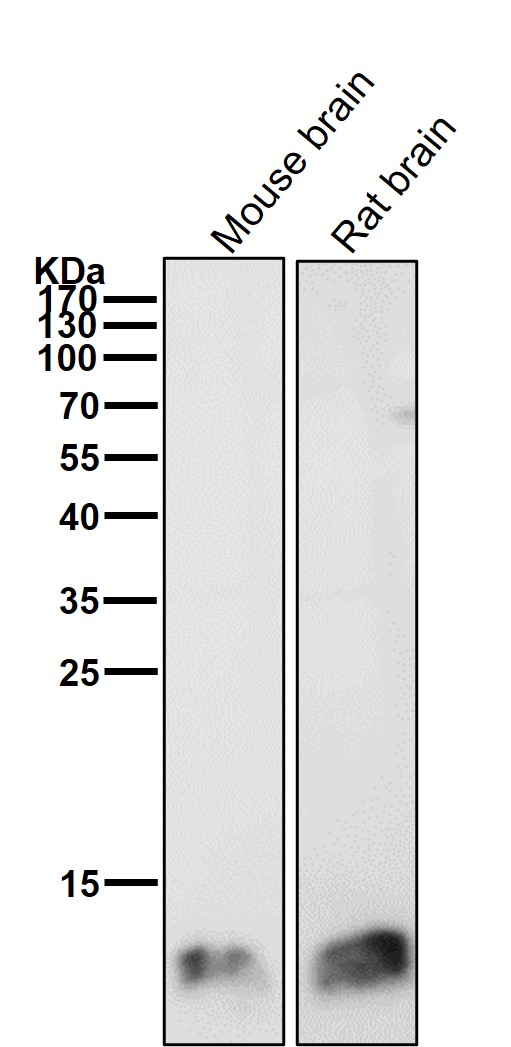
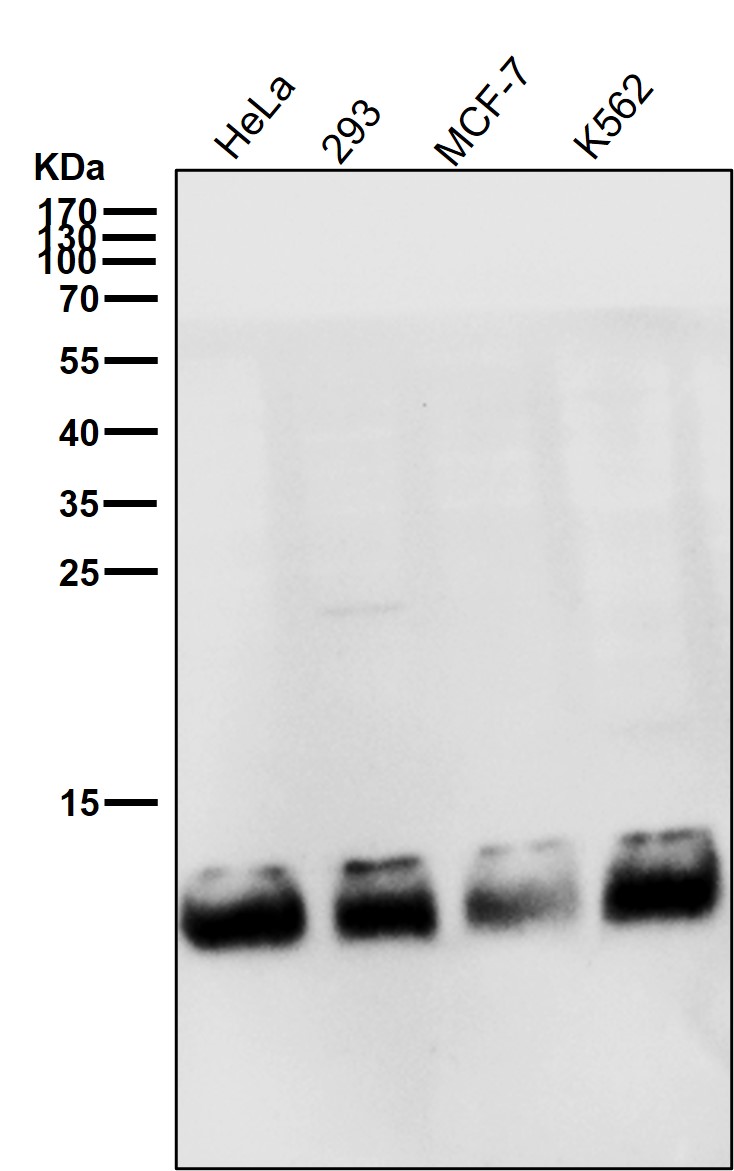
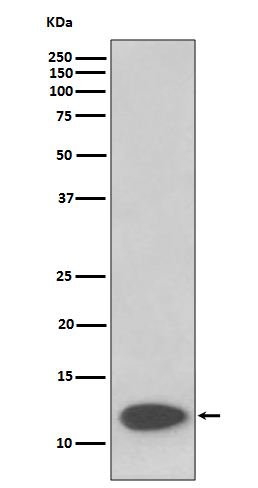
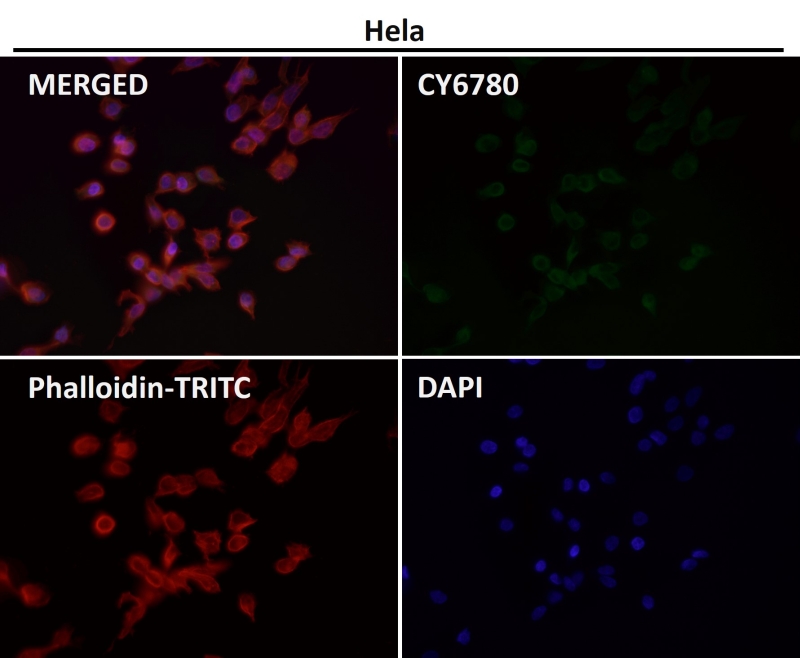
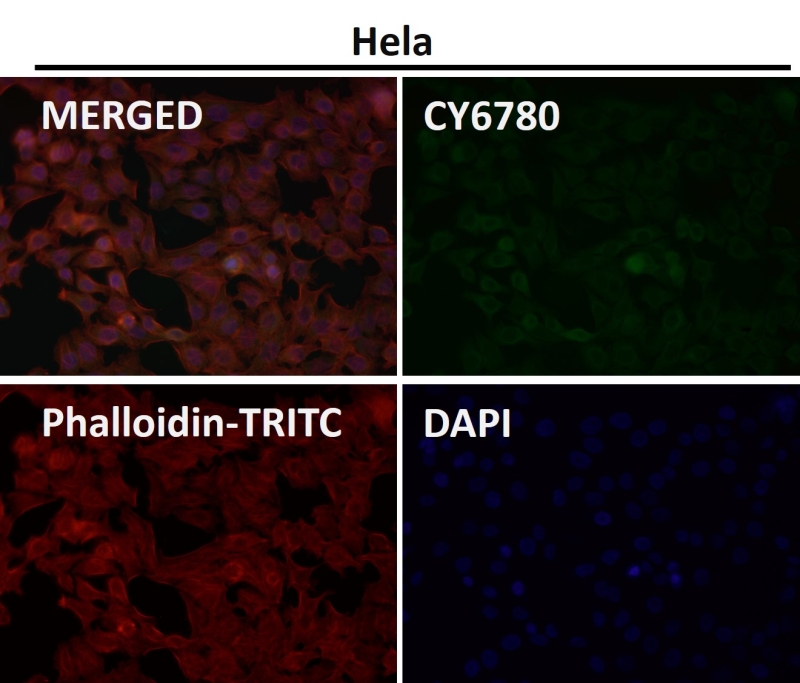
| WB | 咨询技术 | Human,Mouse,Rat |
| IF | 咨询技术 | Human,Mouse,Rat |
| IHC | 咨询技术 | Human,Mouse,Rat |
| ICC | 1/50-1/200 | Human,Mouse,Rat |
| FCM | 咨询技术 | Human,Mouse,Rat |
| Elisa | 咨询技术 | Human,Mouse,Rat |
| Aliases | FKBP 12; FKBP 1A; FKBP1; FKBP12 Exip3; FKBP12C; fkbp1a; Immunophilin FKBP12; PKC12; PPIase FKBP1A; Rotamase;;FKBP1A |
| WB Predicted band size | 12 kDa |
| Host/Isotype | Rabbit IgG |
| Antibody Type | Primary antibody |
| Storage | Store at 4°C short term. Aliquot and store at -20°C long term. Avoid freeze/thaw cycles. |
| Species Reactivity | Human,Mouse,Rat |
| Immunogen | A synthesized peptide derived from human FKBP1A |
| Formulation | Purified antibody in PBS with 0.05% sodium azide,0.05% BSA and 50% glycerol. |
+ +
以下是3篇与FKBP12抗体相关的参考文献(虚构示例,仅作格式参考):
1. **"FKBP12 modulates TGF-β receptor signaling via antibody-sensitive interactions"**
- 作者:Wang X, et al.
- 摘要:研究通过特异性FKBP12抗体,揭示其通过与TGF-β受体结合调控SMAD蛋白磷酸化的分子机制,并验证抗体在免疫共沉淀实验中的有效性。
2. **"Development of a high-affinity monoclonal antibody for FKBP12 in neurodegenerative disease models"**
- 作者:Smith JL, et al.
- 摘要:报道一种新型单克隆抗体的制备,该抗体可特异性识别脑组织中的FKBP12.并用于阿尔茨海默病模型中蛋白错误折叠的检测。
3. **"FKBP12 antibody blocks mTOR signaling in cancer cells"**
- 作者:Chen R, et al.
- 摘要:利用FKBP12抗体抑制mTOR-FKBP12-雷帕霉素复合物形成,证明其在乳腺癌细胞中诱导自噬和凋亡的治疗潜力。
(注:以上为模拟内容,实际文献需通过PubMed等数据库检索。)
FKBP12 (FK506-binding protein 12 kDa) is a ubiquitously expressed intracellular protein belonging to the immunophilin family, known for its peptidyl-prolyl isomerase (PPIase) activity. It plays a critical role in modulating cellular processes by interacting with various signaling molecules, including the TGF-β receptor, ryanodine receptors (RyRs), and the mTOR (mechanistic target of rapamycin) pathway. FKBP12 is notably recognized for its high-affinity binding to immunosuppressive drugs like FK506 (tacrolimus) and rapamycin (sirolimus), forming complexes that inhibit calcineurin or mTOR, respectively, influencing immune response and cell growth regulation.
Antibodies targeting FKBP12 are widely used as research tools to study its expression, localization, and interactions in physiological and pathological contexts. These antibodies enable detection of FKBP12 in techniques such as Western blotting, immunoprecipitation, and immunohistochemistry. Given its involvement in calcium signaling, protein folding, and pathways linked to cancer, neurodegeneration, and cardiovascular diseases, FKBP12 antibodies are valuable for investigating disease mechanisms or drug effects.
Most FKBP12 antibodies are raised against conserved epitopes, ensuring cross-reactivity across species (human, mouse, rat). However, specificity validation is essential due to potential cross-reactivity with other immunophilins. Monoclonal and polyclonal variants are commercially available, with applications spanning basic research to preclinical studies. Understanding FKBP12's regulatory roles through antibody-based assays continues to advance insights into cellular homeostasis and therapeutic targeting.
×